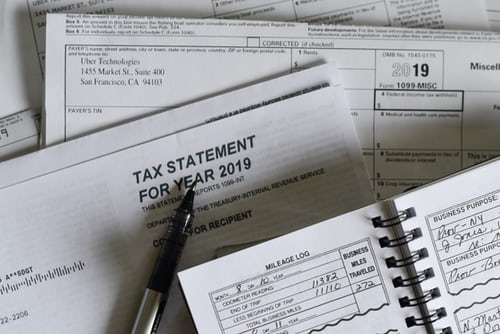TERMS AND CONDITIONS
These Terms and Conditions (“T&C’s”) constitute a legally binding agreement made between the User
(“User”), and Brego Business Private Limited (the “Company”), which expression shall, wherever the
context permits, be deemed to mean and include its successors, assigns, partners, subsidiaries and
affiliates, pertaining to the access to and use of the Company’s website Brego Business as well as any
related websites or applications. (Hereinafter, the User and the Company are individually referred to
as “Party” and collectively as the “Parties”.)
AGREEMENT TO TERMS AND CONDITIONS:
User agrees that by using and/or accessing the website or availing the services provided on the
website, that they have read, understood, and agree to be bound by all of these Terms and Conditions.
Failure to agree to these Terms and Conditions, would result in prohibition from using the website.
These Terms and Conditions are subject to change at any time. The updated version of these Terms
and Conditions will be indicated by an updated “Revised” date and the updated version will be
effective as soon as it is accessible. The User is responsible for reviewing these Terms and Conditions
to stay informed of updates and continued use of the website represents that these changes have
been accepted.
The Company may update or change the website from time to time to reflect changes to the services,
users’ needs and/or business priorities
The information provided on the website is not intended for distribution to or use by any person or
entity in any jurisdiction or country where such distribution or use would be contrary to law or
regulation of the subject jurisdiction or country.
ACCEPTABLE USE
User may not access or use the website and/or avail the services provided by the Company for any
purpose other than its intended purpose. The website and the information on it shall not be used in
connection with any commercial endeavors except those that are specifically endorsed or approved
by the Company.
REGISTRATION ON THE WEBSITE
User must be at least 18 (eighteen) years of age or older (in case of an individual), must be of sound
mind and not debarred by any law to contract in order to access and use the Website. If User uses the
Website or the Services on behalf of someone else including but not limited to, as a legal
representative of another individual or an entity, the User must be authorized by such individual or
entity. The Website is accessible to children under the age of 18 (eighteen), however the Company
strongly encourages parents and guardians to supervise the online activities of their minor children
and consider using parental control tools. These tools also can prevent minors from disclosing their
name, address, and other personally identifiable information online without parental permission.
The Website and the offerings therein are intended only for registered Users who have completed the
registration process and completed the KYC (Know-Your-Customer) requirements set out on the
Website. The User must agree to become a member of the Website by providing ‘Registration Data’
(as set out on the Website) while registering on the Website and accept these User Terms. The use of
the Website is offered to the User conditioned on ‘Acceptance’ of all the terms, conditions and notices
contained in these User Terms. Upon ‘Acceptance’, these User Terms will be effective and binding
along with any amendments made by website. For the aforesaid purposes, ‘Acceptance’ will mean affirmative action in clicking on [“Accept”] button as provided on the registration page or any act
which reflects use of the Website or the services provided by the Website or any such other actions
that implies acceptance.
User also undertake not to sell or otherwise transfer the account/ User ID, or allow any third party to
use or access the User account. The Company reserves the right to refuse service, terminate accounts,
or remove or edit content in its sole discretion.
USER RIGHTS ON THE WEBSITE
These User Terms govern access and use of the Website, which includes any images, text, illustrations,
designs, icons, photographs, programs, music clips, downloads, systems and methods of trading, video
clips, graphics, user interfaces, visual interfaces, information, data, tools, products, written materials,
services and other content (together, ”Content”), including but not limited to the design, structure,
selection, coordination, expression and arrangement of the Content available on or through the
Website.
The Company grants the User a limited right to use the Website. The individual user will not use the
Website in any way that is fraudulent or unlawful. The right to use the Website is subject to the
agreement to abide by these User Terms in their entirety, as well as any other rules, procedures,
policies, terms or conditions that govern all or any portion of the Website. At any time and for any
reason the Company may revoke the User’s right to use all or any portion of the Website
The Website and the Content is not intended for distribution to, or use by, any person or entity in any
jurisdiction or country outside India.
WEBSITE NOT AN OFFER OR INVITATION
The Website has been prepared solely for purposes of information. The information available on the
Website is for convenience of presentation and under no circumstances should the Website be used
or considered as an offer to sell or the invitation or solicitation of an offer to buy any asset listed on
the Website. Before making a decision with respect to purchasing any asset, Users are advised to
carefully read the related final documentation. Further, the Company does not give or offer any
business advice, investment advice, tax or legal advice to anyone using this Website. Accordingly,
Users are advised to consult with their tax, legal and financial advisors and carry out their own due
diligence with respect to purchasing any asset.
Nothing contained on the Website must be relied upon as a promise or representation as to past or
future performance. The Website may contain forward-looking statements. In some cases, you can
identify forward-looking statements by terminology such as “may,” “will,” “should,” “expects,”
“plans,” “anticipates,” “believes,” “targeted,” “projected,” “underwritten,” “estimates,” “predicts,”
“potential,” or “continue” or the negative of these terms or other comparable terminology. These
forward-looking statements include, but are not limited to, statements concerning the company,
property, risk factors, plans and projections. Forward-looking statements are subject to various risks and uncertainties. Accordingly, there are or will be important factors that could cause actual outcomes
or results to differ materially from those indicated in these statements.
APPLICABLE CONDITIONS.
By using this website, the User agrees:
- To be bound by these terms and conditions, which shall be final and binding;
- To waive any right to claim ambiguity in the website or these terms and conditions, except
where prohibited by law.
By using this website, the User agree to release and hold harmless the Company and its directors,
employees, officers, licensees, licensors and agents, and any person or entity associated with the
development, administration and maintenance of this website (collectively referred to as, the
“Released Parties”), from and against any and all rights, claims and causes of action whatsoever that
they may have, or which may arise, against any of them for any liability for any matter, cause or thing
whatsoever, including but not limited to any injury, loss, damage, whether direct, compensatory,
incidental or consequential, to person, including death and damage to property, arising in whole or in
part, directly or indirectly, from their utilization of the website.
None of the Released Parties are responsible for:
- Lost, late, misdirected, undeliverable, incomplete or indecipherable entries due to system
errors or failures, or faulty transmissions or other telecommunications malfunctions and/or
entries;
- Technical failures of any kinds;
- Technical or human error which may occur in the administration of the website or the
processing of entries.
INDEMNIFICATION
The User agrees to indemnify, defend and hold harmless the COMPANY and its affiliates including but
not limited to its (and its affiliates’) officers, directors, consultants, agents and employees
(“Indemnities”) from and against any and all losses, liabilities, claims, damages, demands, costs and
expenses (including legal fees and disbursements in connection therewith and interest chargeable
thereon) asserted against or incurred by the Indemnities which may arise out of the User’s negligence,
mistake or as the case may be in the course of utilization of the
NO WARRANTY; LIMITATION OF LIABILITY
By using the website, the User expressly agrees that such use is at their own sole risk. The website and
related services are provided on an “as is”, “as available” and “with all faults” basis. Neither the
Company nor any of its respective officers, directors, partners, employees, agents, third-party content
providers, designers, contractors, distributors, merchants, sponsors, licensors or the like (collectively,
“Associates”) warrant that use of the website or related services will be uninterrupted or error-free.
Neither the Company nor its Associates warrant the accuracy, integrity, completeness, availability or
timeliness of the content provided in the website or the materials or services offered in the website
now or in the future. The Company and its Associates specifically disclaim all warranties, whether expressed or implied, including but not limited to warranties of title, merchantability, fitness for a
particular purpose or non-infringement of the website, information on the website or the results
obtained from use of the website or related services. The Company and its associates accept no
responsibility for updating any party of the website or the content therein.
Under no circumstances will the Company or its associates be liable to the User or anyone else for any
direct, consequential, incidental, special, exemplary, punitive or other indirect damages, including but
not limited to lost profits, trading losses, unauthorized access, systems failure, communications line
failure, internet failure or damages that result from use or loss of use of the website, content,
inconvenience or delay. This is true even if the Company has been advised of the possibility of such
damages or losses.
OWNERSHIP OF MATERIALS ON WEBSITE
User may download or copy Content only to the extent such download is expressly permitted in
writing on the Website. No right, title or interest in any downloaded materials or software is
transferred to the User as a result of any such downloading or copying. User may not reproduce
(except as noted above), publish, transmit, distribute, display, modify, create derivative works from,
sell or participate in any sale of or exploit in any way, in whole or in part, the Content, the Website or
any related software.
Nothing on the Website will be interpreted as granting any license or right to use any image,
trademark, trade dress, logo or service mark on the Website. Anything transmitted to the Website by
the User becomes the Company’s property and may be used for any lawful purpose. The Company
reserves all rights with respect to copyright and trademark ownership of all material on the Website,
and will enforce such rights to the full extent of the law.
Unless otherwise provided, all Content are copyrights, trademarks, trade dress and/or other
intellectual property owned, controlled or licensed by the Company or by third parties who have
licensed their materials to the Company and are protected by Indian and international copyright laws.
The compilation of all Content on the Website is the exclusive property of the Company and is also
protected by Indian and international copyright laws.
The Website, including all Information, is owned by or licensed to the Company and is subject to and
protected by various intellectual property rights, including but not limited to copyright, trade secrets,
trademarks, service marks, brand names and other proprietary rights whether under contract, statute
or any similar provisions (“IP Rights”). All IP Rights are and will remain the exclusive property of the
Company, its respective third-party licensors or third parties to whom it is attributed and in using the
Website individual users will not obtain any rights, title or other interest in or to any information on
the Website or related IP Rights. Subject to the above, individual users are entitled to view the
Information on the Website and to copy and print such information for personal use. Individual users
are not permitted to sell or distribute or otherwise deal with the Information on the Website or any
deviations of such information without the prior written consent of the Company.
PRIVACY
Any personal information collected by the Company will be used for the administration of the services
on the website and in accordance with the Privacy Policy. Any questions regarding privacy matters
should be directed to the address set out here mihir@bregobusiness.com. Please refer to the Privacy
Policy on our website Brego Business, for important information regarding the collection, use and
disclosure of personal information by the User.
CONFIDENTIAL INFORMATION.
In connection with the website, the COMPANY may collect personal and/or proprietary information
from the User. The COMPANY shall hold confidential and shall not use or permit others to use any
proprietary information identified as such in writing or orally by the User or information which the
COMPANY knows or has reason to know is confidential, proprietary or trade secret information of the
User.
FORCE MAJEURE.
The COMPANY shall not be liable for any delay or failure in performance of the website due to Acts of
God, earthquakes, shortages of supplies, transportation difficulties, labor disputes, riots, war, fire,
epidemics and similar occurrences.
NO WAIVER.
No waiver of rights under by either Party shall constitute a waiver of this or any other right under
these Terms and Conditions.
SEVERABILITY.
In the event that any part of these Terms and Conditions becomes or is declared illegal by any court
of competent jurisdiction, such part(s) shall be null and void and shall be deemed deleted from these
Terms and Conditions. All remaining terms shall remain in full force and effect.
NO AGENCY.
Neither Party has the right or authority to, and shall not, assume or create any obligation of any nature
whatsoever on behalf of the other Party or bind the other Party in any respect whatsoever.
EFFECT ON OTHER AGREEMENTS
Nothing contained in these User Terms and Conditions is intended to modify or amend any other
written agreement you may have with the Company or other Users of the Website (“Other
Agreements”) if any, that may currently be in effect. In the event of any inconsistency between these
User Terms and any Other Agreements, the Other Agreements will govern. Some pages within the
Website contain supplemental terms and conditions and additional disclosure and disclaimers, which
are in addition to these User Terms. In the event of a conflict, the supplemental terms and conditions
and additional disclosures and disclaimers will govern for those sections or pages.
ARBITRATION
If any dispute arises between the User and the Company during the use of the Website or thereafter,
in connection with the validity, interpretation, implementation or alleged breach of any provision of
these User Terms, or the documents they incorporate by reference, the dispute will be referred to a
sole Arbitrator who will be an independent and neutral third party identified by the Company. The
place of arbitration will be Mumbai, Maharashtra. The arbitration proceedings will be in the English
language and will be governed by the Arbitration & Conciliation Act, 1996.
GOVERNING LAW
These User Terms or the documents they incorporate by reference will be governed and construed in
accordance with the laws of India. Subject to clause of Arbitration above, all disputes arising under
these User Terms between the User and the Company will be subject to the exclusive jurisdiction of
courts at Mumbai, Maharashtra, India.




